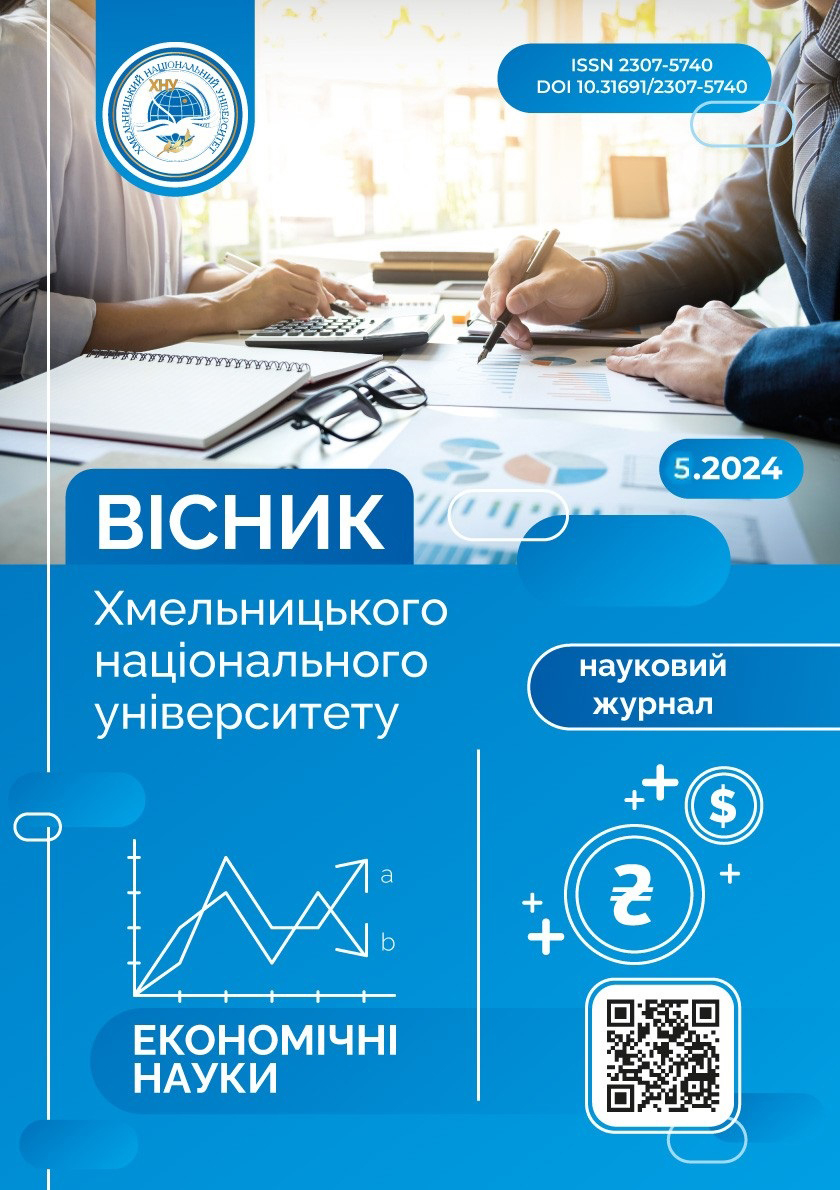EUROPEAN INTEGRATION IMPERATIVES OF UKRAINE'S POST-WAR RECONSTRUCTION ON THE BASIS OF SUSTAINABILITY: IN SEARCH OF SOURCES OF FINANCING
DOI:
https://doi.org/10.31891/2307-5740-2024-334-93Keywords:
transformation, modernization, sustainability, sustainable development, circular economy, circular business model, circular transition, project, economic development, decentralization, communities, recovery, strategic planning, investments, small and medium-sized enterprises, financial instruments, financial support, financial security, EU, ESG, SDGs, European Green Deal, climate neutrality, corporate social responsibilityAbstract
The purpose of the article is to study the specifics of financing investment projects on the principles of sustainability and circularity, the demand for which will grow in the conditions of post-war reconstruction of Ukraine, which will take place taking into account the European integration imperatives of the international economic policy of Ukraine. It is proven that “sustainability” is a kind of framework concept that simultaneously imposes restrictions and creates opportunities for attracting capital. In the conditions of post-war reconstruction of Ukraine, it becomes promising to increase in the portfolio of investment projects those that are oriented towards the implementation of circular business models that serve as a tool for implementing green and circular transitions. Revision of value and supply chains taking into account the “dominant of circularity” is an imperative of the “green” European integration course.The circular economic model is an innovative platform and ensures sustainable development by moving from a linear model based on consumption and recycling to one in which the service life of products is maximized, natural resources are reused, and materials and waste are minimized. Currently, three distinct cycles of circularity are distinguished, which are gradually becoming wider: closing resource cycles, which is determined by the relatively traditional economic system; slowing down resource cycles and material flows through the continuation and intensification of the use of products to preserve their value and cost over time; narrowing resource cycles through more efficient use of materials, resources and products of the linear system.
The transformation processes taking place in the financial sector under the influence of the greening of financial policies not only of companies, but also of the Central Banks of the leading countries of the world, show that ignoring the sustainability factor and non-compliance with ESG criteria will affect the credit ratings of institutions in particular and reputational positions in general. “Green” factors increasingly aggressively determine the ability of small and medium-sized enterprises (SMEs) to apply for grant support for financial provision of circular and sustainable projects. Circular, green and energy transitions in the context of sustainable development will act as a universal tool for achieving many Sustainable Development Goals (SDGs), which will make it possible to attract financial resources from special funds that deal with solving global development problems. Europe strives to become the world's first climate-neutral continent by 2050. The EU must transform into a fair and prosperous society with a modern and competitive economy. This highlights the need for a holistic and cross-sectoral approach, in which all relevant policy areas contribute to achieving the ultimate climate-related goal. The implementation of environmental initiatives at the global, regional, inter-country and macro-, meso-, micro-levels is facilitated by political initiatives of actors at the global, regional and national levels. Therefore, The European Union (EU), having adopted ambitious goals of achieving climate neutrality, uses the European Green Deal, which is fundamentally capable of modifying the investment and financial landscape, which should be taken into account when selecting investment projects within the framework of post-war reconstruction programs.
In the process of post-war reconstruction of regions, the challenges of solving the problems of energy security, resource security, water resources management will be on the agenda. Ukraine during the post-war development has all the prerequisites for acquiring the status of a green and circular center of Europe. In the context of decentralization, the coordination of relevant initiatives becomes significantly more complicated: on the one hand, the liberalization of the institutional space provides a lot of flexibility to municipalities and communities, on the other hand, post-war socio-economic development creates a demand for strategic planning of Ukraine's place in the international division of labor, and therefore - strategizing its industrial development on the basis of sustainability. Under these conditions, the European Green Deal can become a kind of strategic framework that will clearly define the standards for greening business principles. It is fully foreseen that attracting financing from EU funds will involve increasing requirements for corporate social responsibility of enterprises.


